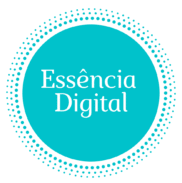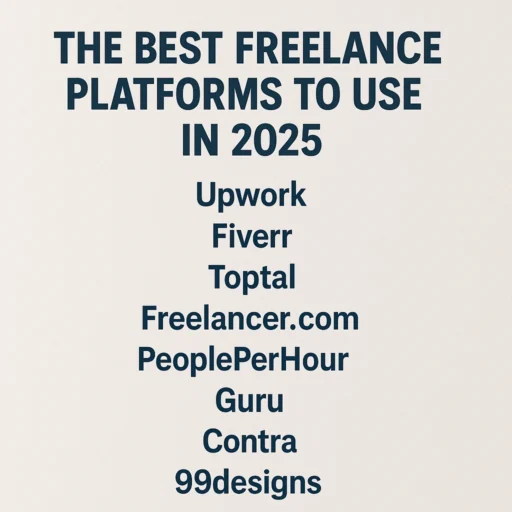In the ever-evolving world of freelancing, staying updated with the best platforms can give you a significant edge. Whether you’re just starting or already experienced, choosing the right freelance marketplace is key to finding quality clients, fair pay, and steady work.
As we head further into 2025, the freelancing economy continues to expand, and so do the opportunities. This guide breaks down the best platforms for freelancers this year, what makes each unique, and how to choose the one that fits your goals.
Why Choosing the Right Platform Matters
Not all freelance platforms are created equal. Some are better for beginners, others are ideal for niche professionals. Picking the wrong platform can waste your time, lower your earning potential, or result in frustrating experiences with clients.
Choosing the right one can:
- Connect you with high-quality clients
- Help you build a strong portfolio
- Provide tools for secure payments and contracts
- Offer a steady stream of opportunities in your niche
Let’s explore the top options.
1. Upwork
Best for: Freelancers across multiple industries (writing, design, development, marketing, etc.)
Upwork remains one of the most versatile and widely used platforms. It connects freelancers with clients of all sizes, from startups to Fortune 500 companies.
Key Features:
- Job board style: apply to postings with customized proposals
- Escrow system for secure payments
- Long-term contracts and hourly or fixed pricing
- Project catalog to sell pre-packaged services
Pros:
✅ Trusted by major brands
✅ Robust search and filtering
✅ Ideal for long-term work
Cons:
❌ High competition
❌ 10% service fee on all payments
2. Fiverr
Best for: Creative services, small business support, quick gigs
Fiverr works a little differently—you set up service “gigs” that clients can browse and purchase. It’s great for freelancers who want to package their skills into fixed-price offerings.
Key Features:
- No need to apply for jobs
- Tiered service pricing options
- Gig extras to increase value
- Freelancer rating system
Pros:
✅ Great for creatives and beginners
✅ Set your own packages
✅ Clients come to you
Cons:
❌ 20% service fee
❌ Hard to stand out at first
3. Toptal
Best for: Experienced freelancers in tech, finance, and design
Toptal (Top Talent) is known for its rigorous vetting process. They accept only the top 3% of applicants, making it ideal for seasoned professionals.
Key Features:
- Pre-screened clients and freelancers
- High-paying contracts
- Focus on long-term and enterprise clients
Pros:
✅ Excellent pay rates
✅ Prestigious clients
✅ Zero bidding wars
Cons:
❌ Tough application process
❌ Not suitable for beginners
4. Freelancer.com
Best for: General freelance services with project variety
Freelancer.com offers a wide range of project types, from short-term gigs to full-time remote work. It’s similar to Upwork, with a bidding system for jobs.
Key Features:
- Contests for design and creative work
- Milestone payments
- Live chat with clients
Pros:
✅ Broad categories
✅ Payment protection
✅ Global job listings
Cons:
❌ Service fees can be confusing
❌ High competition on low-paying gigs
5. PeoplePerHour
Best for: Freelancers in Europe, especially in marketing and design
PeoplePerHour blends features of Fiverr and Upwork. You can list your services as offers or apply to client requests.
Key Features:
- AI-based job matching
- Built-in invoicing system
- Community rating system
Pros:
✅ Strong European client base
✅ Flexible payment options
✅ Freelancer-friendly tools
Cons:
❌ Limited reach outside of Europe
❌ Approval to post offers can take time
6. Guru
Best for: Long-term freelancers and consultants
Guru provides a simple interface and flexible payment structures, including hourly, milestone, or recurring payments. It’s ideal for consultants or those who manage multiple clients.
Key Features:
- Custom work agreements
- SafePay system for payments
- Detailed workroom for collaboration
Pros:
✅ Low service fees
✅ Good for recurring contracts
✅ Detailed freelancer profiles
Cons:
❌ Smaller client base than other platforms
❌ Limited marketing tools
7. Contra
Best for: Portfolio-based freelancers in creative industries
Contra is a newer platform focused on helping freelancers showcase their work and get hired without paying platform fees.
Key Features:
- No commissions
- Stylish, customizable portfolios
- Targeted at independent creators
Pros:
✅ 100% of your earnings go to you
✅ Clean, modern interface
✅ Growing network of startup clients
Cons:
❌ Still developing reputation
❌ Not as many clients as bigger platforms
8. 99designs
Best for: Graphic designers, illustrators, and branding specialists
99designs is tailored for freelance designers. You can work one-on-one with clients or participate in contests.
Key Features:
- Design contests where clients choose the best submission
- Dedicated client-designer projects
- Focus on visual branding work
Pros:
✅ Targeted to designers
✅ Opportunity to build strong client base
✅ Global audience
Cons:
❌ High competition in contests
❌ Commission fees apply
How to Choose the Right Platform for You
Ask yourself these questions:
- Am I a beginner or experienced freelancer?
- Do I prefer pitching or having clients come to me?
- What’s my niche—creative, tech, business?
- Do I want to work with individuals or companies?
- How important are platform fees and withdrawal options?
There’s no need to stick to just one. Many freelancers start on one platform to build credibility, then expand to others.
Bonus: Alternative Ways to Find Freelance Work
In addition to platforms, you can find clients through:
- LinkedIn networking
- Cold emailing startups or agencies
- Facebook groups or Discord communities
- Job boards like We Work Remotely, Remote OK, and FlexJobs
These methods take more effort but offer higher pay and lower competition in many cases.
Final Thoughts: Find Your Freelance Home
Freelance platforms are powerful tools to launch or scale your career—but they’re not one-size-fits-all. The best platform for you depends on your goals, skills, and how you want to work.
Here’s a quick recap:
- Upwork: Best for variety and long-term contracts
- Fiverr: Best for quick gigs and packaged services
- Toptal: Best for elite professionals
- Freelancer.com: Best for general use
- PeoplePerHour: Best for European freelancers
- Guru: Best for consultants and recurring work
- Contra: Best for portfolio-based creatives
- 99designs: Best for design work
Explore, experiment, and invest time in building a strong presence. With consistency and strategy, your perfect freelance platform can become the gateway to freedom, income, and professional growth.

